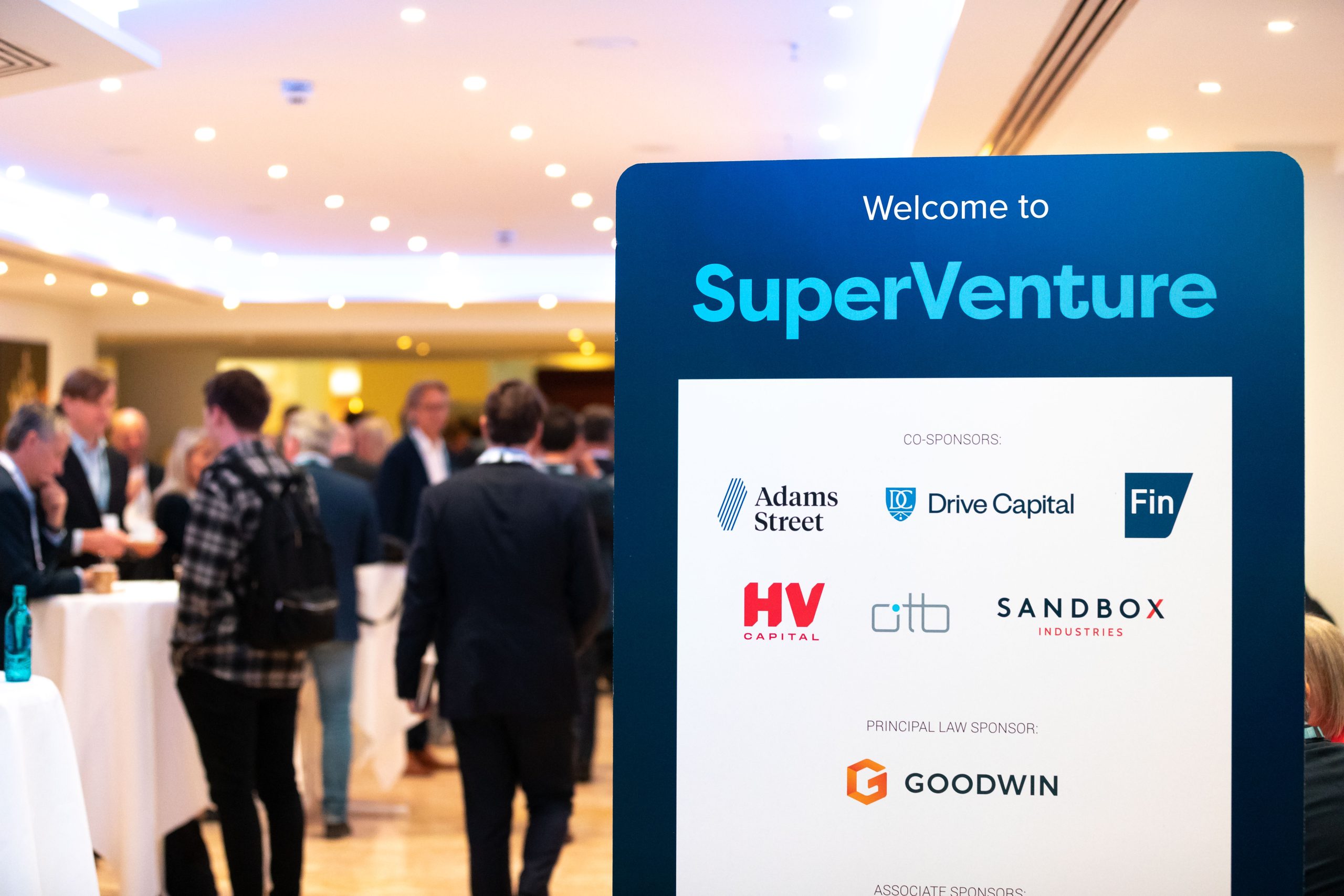The original intention for this post was to publish 10 relatively pithy observations about Slush, the startup and VC conference that took place in Helsinki on 17 and 18 November.
As I wandered the conference floor and sat in on various sessions over those two days, I was mentally identifying and organising those observations, ready to flesh them out on my return to the UK. Then, over the weekend, one point in particular suddenly became much more complicated than it had seemed just a couple of days ago.
I’ll tackle that one first, and in more detail than I would have done previously, but the other nine are still here, and still worthy of discussion.
Strap in for my top 10 reflections from Slush 2022.
1. Backlash over winner’s Russian connections overshadows inaugural Slush 100 competition
Slush has pioneered several initiatives in recent years – perhaps most notably Node, the online platform introduced in lieu of an in-person conference during the Covid-enforced shutdown of events in 2020. This year, the latest – the Slush 100 – brought together five top-tier European VCs (Accel, General Catalyst, Lightspeed, NEA, and Northzone) to provide €1 million in funding to the one startup that emerged victorious from a multi-stage pitch competition.
The Founders Stage was overflowing on Friday to watch the final three startups – Immigram, SociAbility, and Zeely – make their decisive presentations to the judges, and the conference-closing announcement of Immigram as the competition’s winner was rapturously received.
But the backlash began almost immediately, with several individuals, companies, and organisations arguing that Slush shouldn’t be rewarding a startup with connections to Russia while the invasion of Ukraine continues. Fellow finalist Zeely is, incidentally, a Ukrainian company. An initial statement from Slush reiterated its unwavering support for Ukraine, and noted that the investment would be withdrawn if the investors’ post-competition due diligence revealed any direct connections to Russia. But mere hours later a new statement followed – an announcement that “in light of new information” Immigram’s Slush 100 win would be revoked and Slush would be asking the five investors not to provide the funding.
While of course it is hard to argue against maintaining a strong stance and upholding boycotts and sanctions against Russian companies while the war rages, it’s worth asking: is Immigram really “a Russian company”? Both co-founders – Anastasia Mirolyubova and Mikhail Sharonov – are Russian citizens, yes. But they relocated to the UK in 2016, and maintain that Immigram doesn’t have any employees or corporate entity in Russia – and that has not taken any Russian investment, either. The backlash began when it emerged the company was hiring in Moscow – the co-founders insist they require any Russian hires to relocate before coming on board. There have been claims that Mirolyubova and Sharonov have taken significant actions – as individuals and on behalf of Immigram to make clear their opposition to Russia’s invasion, provide assistance to the Ukrainian defence effort, support people wanting to flee Russia, and support Ukrainian war and humanitarian aid efforts. Likewise, there have been claims that all is not what it seems with the UK entity. Perhaps due diligence will discover – or indeed already has discovered – holes in Immigram’s defence, but it certainly looks like a situation that calls for more nuanced thinking than it’s received so far.
I’m not sure what I think the right answer is. Certainly the easiest solution – as ever – would have been to ensure the situation didn’t arise at all, whether by quietly filtering Immigram out of the competition at the application stage, or by eliminating the company at any of the subsequent selections. What does seem intuitively wrong, however, is that the backlash has apparently turned personal – Mirolyubova has alleged she has received racist and xenophobic abuse, and even death threats – when whatever criticism there is to be made should surely be focused only on Slush and the investors judging the competition.
One final thought: this backlash, and the withdrawal of the prize, will be a black mark on the company, at least in the short term. While the co-founders’ decision to withdraw – seemingly made simultaneously with Slush’s to revoke the prize – and their conciliatory language in the immediate aftermath are understandable (any other reaction would simply have fanned the flames), one wonders whether they might have grounds to seek legal redress for being denied a fairly-won award any suffering any additional impact over time?
2. Calls for collaboration to reinforce democracy and reduce dependencies
The war in Ukraine also provided the backdrop to a full-house fireside chat with Finnish Prime Minister Sanna Marin, who highlighted the opportunities that technology provides to address vulnerabilities – from defence to energy to food – that Russia’s invasion has shone a stark light on.
From this starting point, Marin issued an impassioned two-part call to her counterparts across Europe. First, get on the same page when it comes to admitting the mistakes made and inadequacies tolerated in existing approaches to the biggest problems facing the world today. Second, invest now in developing the technology, know-how, and infrastructure needed to reduce dependence on countries – such as China – where democracy and human rights are under threat, for key assets such as semiconductors. We must act now, she said, highlighting that it could take a decade or more to build alternative sources to the required scale.
Watching Marin speak on the same day as UK Chancellor Jeremy Hunt delivered the Autumn Statement, it was also interesting to hear her celebrate cross-party consensus in Finland on a plan to set R&D spending at 4 per cent of GDP. The UK’s roadmap – in spite of repeatedly stated ambitions in science and innovation, will see its own R&D investment hit only 2.4 per cent of GDP, and even then only by 2027.
3. Decision to downsize reaps rewards
Having grown attendee numbers significantly in the years immediately prior to Covid-19 forcing the 2020 conference to shut down, Slush returned as a physical event in 2021 looking notably smaller. 2022’s event felt like it was at a similar level despite the lifting of restrictions that had made downsizing a Covid security necessity.
From my own discussions with the Slush team, those Covid restrictions were something of a blessing in disguise – enabling them to act on their desire, in response to attendee feedback, to scale back and recapture some of the unique Slush spirit that had been diluted by previously swelling numbers.
The benefits were plain to see, with connections easier to make, the venue easier to move around, seating at the stages easier to come by, and more than one person comparing the conference positively to the unmanageable behemoth that Web Summit, Slush’s near neighbour on the startup and VC conference calendar has become in recent years.
4. Things will be great in a downturn
Slush has always been a conference and community that is relentlessly optimistic about the startup and VC ecosystem and the potential for companies to succeed. So while it took only until the opening salvo of the first session on the Founders Stage for talk to turn to the potentially perilous economic situation for startups, it was no surprise that speaker Doug Leone of Sequoia had encouraging words to say. Yet this was no “great companies get created in downturns” banality – terrible ones do, too, and plenty more great ones emerge in the good times – but a more refined analysis.
Now is, Leone said, a crucible moment – for investors as well as for startups. For founders, now that capital is no longer flowing freely and lines aren’t simply continuously heading “up and to the right”, it’s time to unlearn the bad habits picked up in uninterrupted good times, work out whether you are strong or weak, and – if you are strong – to double down on investment in product. Without copycats picking up easy money, you will have less competition – there is opportunity for great companies to thrive. As multiple-time Formula 1 world champion Ayrton Senna said: “You cannot overtake 15 cars in sunny weather… but you can when it’s raining.”
Leone also called on founders to scrutinise investors and not simply take the first term sheet they’re offered because any term sheet in a downturn is a win. Look at how investors have treated portfolio companies that struggled, he said. Get references from those founders – how did the investor help them?
Leone’s sentiments about positioning yourself to thrive in a downturn were echoed on day two by Ross Mason, now of Dig Ventures and formerly flounder of Mulesoft, who – alongside advice about managing perceptions around pivots and finding more effective mentors – told his own story of retooling the company through product development in the aftermath of the 2008 GFC.
5. Downround mustn’t be such a dirty word
In a similar vein, Atomico’s Niklas Zennstrom presented a compelling pitch for adjusting attitudes to the downrounds that will become more common as extended recession bites.
“Downround” has become the worst-case scenario and a perceived black mark against a company/founder – but this is nonsense, it’s simply a reflection of market forces outside a founder’s control, not necessarily a judgement on their performance to date, the underlying fundamentals of their business, or their chances of future success.
This call for an attitude adjustment was reinforced by a familiar refrain to reframe failure – we rarely acknowledge that the ecosystem needs the companies that don’t succeed, the release of talent, know-how, and capital that would otherwise stagnate in a middling or just-about-surviving company.
6. When hiring for scale, favour adaptability over existing skills
In further invaluable advice for founders entering the rapid scaling phase of company growth, Shopify’s Shimona Mehta offered the memorable line “hire for slope, not intercept” – meaning that you should hire not for the narrow set of skills required to tackle the specific challenges you know you face now, but for adaptable problem-solving, the ability to identify, respond to, and solve new challenges as and when they inevitably arise.
7. Don’t stop learning, hold on to that feeling…
Meanwhile, Steve Anavi of Qonto leant on the wisdom of Pixar’s Ed Catmull as he elaborated on some of his top tips for avoiding “big company disease” as you scale. Catmull was obsessed with identifying hidden factors that might bring the company down, making problems visible – even writing them on the walls! – and empowering people to fix them. Anavi’s lesson from this for scaling founders is to ensure nobody in your company ever stops learning, in particular highlighting the value of self-initiated problem-solving and the elevation of know-how and common sense to augment data rather than total reliance on the latter.
8. Deeptech steps into the spotlight
It was noticeable just how much deeptech was on show at Slush 2022 – whether on stage or among the exhibitor booths, everywhere you turned you faced at least one company built on genuine breakthrough R&D.
Most impressive was the number of spacetech and quantum computing startups on show. These sectors might previously have seen one or two token representatives on the showcase stages, but in 2022 were out in force, with some mind-blowing pitches at the Startups Studio – take a bow, Destinus (hydrogen-powered hypersonic flight), SkyGrids (extending drone flight time), Porkchop (last-mile transportation for satellites in space), Pangea Aerospace (“holy grail” rocket engine design), IQM (quantum computing company founded in a children’s play park and now a unicorn), and Algorithmiq (quantum computing transforming drug discovery) – backed up by a significant exhibition presence from the European Space agency and a Founders Stage appearance by hometown quantum hero Algorithmiq as it announced its cutting-edge Aurora platform for quantum-led drug discovery and a major partnership with IBM.
9. UK Government missing a trick with lowkey presence?
I was fortunate enough to spend some time at Slush with the delegation of startups and scaleups brought to Helsinki by London & Partners, an organisation that does an excellent job of representing the interests of UK innovators and business growers, especially when it comes to realising international ambitions.
But it was impossible not to notice that there was precious little other “official” UK presence on the conference floor – especially when compared to the substantial booth space bought up by government agencies from the likes of Germany, France, the Netherlands, Switzerland, Poland, Turkiye, South Korea, and many more nations with a fraction of the track record the UK has as an innovation economy.
In conversation with one UK founder I met during my trip, we wondered why this was, considering how little sense it makes in light of years of Government rhetoric and policy ostensibly designed to make the UK a “nation of entrepreneurs” and a “science superpower”. Our conclusion? Perhaps nobody at Number 10 knows what Slush is, or how important it is on the world stage for startups and VCs? Maybe new Prime Minister Rishi Sunak – often derided for his love of Silicon Valley and his “tech bro” leanings – will help turn things around.
10. Twitter chaos (mostly) a pleasant absence
The Slush stages were, mercifully, a Musk-free zone as far as I could tell – the man himself wasn’t there, of course, being busy ransacking a company, but neither were the goings-on at Twitter a significant talking point on the various panels, fireside chats, or showcases, as real innovation and insight came to the fore.
But for anyone – like me – who was trying to showcase as much as possible of their Slush experience on individual or company social media accounts, discussions about the unspooling of Twitter under Elon Musk were, however, ever-present on our phones. Entering the final leg of the conference, tweets about the potential downfall of the understaffed platform gave way to real concerns as the app groaned and glitched under the demands of basic searching, posting, and uploading of photos. Coincidence? Perhaps, but the worst-case scenario becoming more real by the minute while trying frantically to keep up with the breakneck pace of Benedict Evans’ headline presentation was far from a welcome development.
Finally, while I’m reflecting on Twitter and conferences, let me reiterate my eternal plea: organisers, publish speakers’ handles in the agenda! Speakers, put your handles on your slides!




